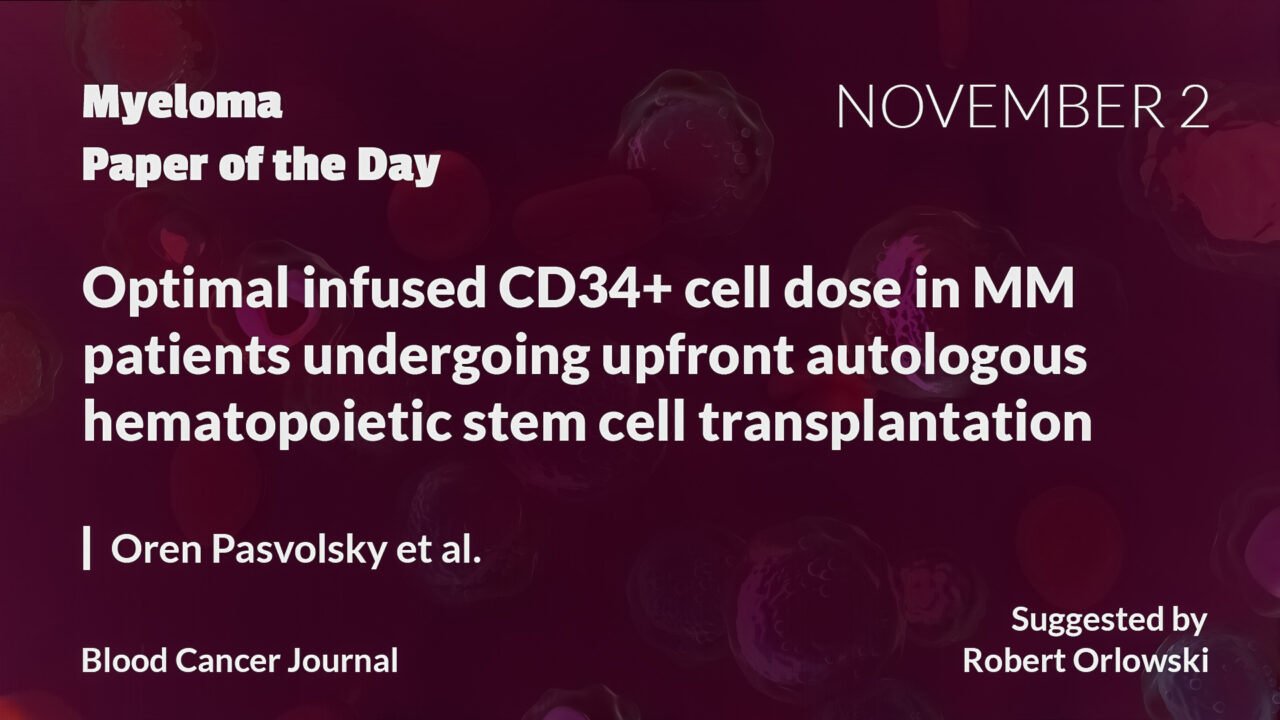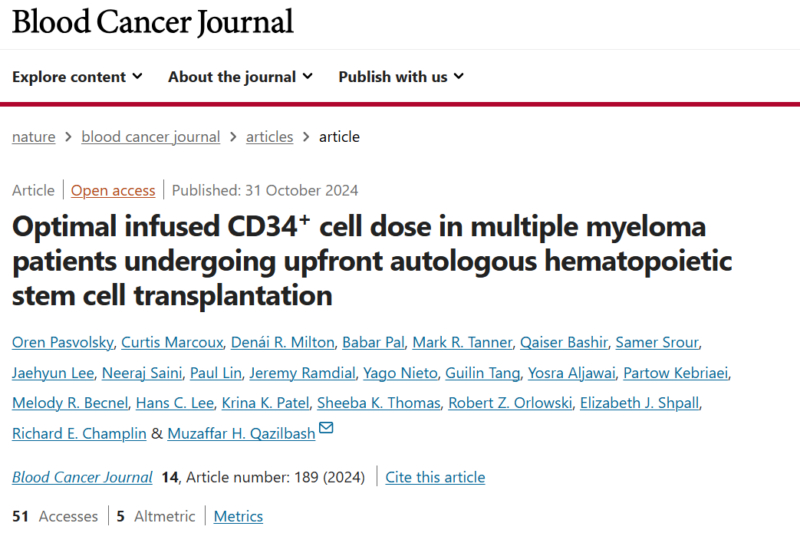
Myeloma Paper of the Day, November 2nd, suggested by Robert Orlowski
Robert Orlowski shared a post on X:
“Myeloma Paper of the Day: Study of optimal infused CD34+ cell dose in myeloma patients undergoing upfront ASCT finds CD34+ dose >2.5 × 106 cells/kg was associated with improved survival, without any additional benefit at incrementally higher doses.”
Authors: Oren Pasvolsky, Curtis Marcoux, Denái R. Milton, Babar Pal, Mark R. Tanner, Qaiser Bashir, Samer Srour, Jaehyun Lee, Neeraj Saini, Paul Lin, Jeremy Ramdial, Yago Nieto, Guilin Tang, Yosra Aljawai, Partow Kebriaei, Melody R. Becnel, Hans C. Lee, Krina K. Patel, Sheeba K. Thomas, Robert Z. Orlowski, Elizabeth J. Shpall, Richard E. Champlin and Muzaffar H. Qazilbash.

More posts featuring Robert Orlowski.
Robert Orlowski, M.D., Ph.D., holds multiple positions at The University of Texas MD Anderson Cancer Center, including Chairman, Ad Interim Director of Myeloma, and Professor of Medicine in the Departments of Lymphoma/Myeloma and Experimental Therapeutics within the Division of Cancer Medicine. Additionally, he chairs the SWOG Barlogie/Salmon Myeloma Committee, which is part of the National Clinical Trials Network, dedicated to advancing new therapies and understanding the biology of myeloma.
Dr. Orlowski’s expertise lies in both clinical practice and scientific research, with a particular focus on translating laboratory discoveries into effective treatments for patients. He investigates drug resistance mechanisms in myeloma and seeks to identify predictive biomarkers for treatment response. Notably, his past contributions include leadership roles in developing proteasome inhibitors like bortezomib and carfilzomib, as well as monoclonal antibodies such as daratumumab and elotuzumab.
-
Challenging the Status Quo in Colorectal Cancer 2024
December 6-8, 2024
-
ESMO 2024 Congress
September 13-17, 2024
-
ASCO Annual Meeting
May 30 - June 4, 2024
-
Yvonne Award 2024
May 31, 2024
-
OncoThon 2024, Online
Feb. 15, 2024
-
Global Summit on War & Cancer 2023, Online
Dec. 14-16, 2023
